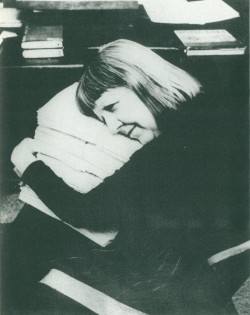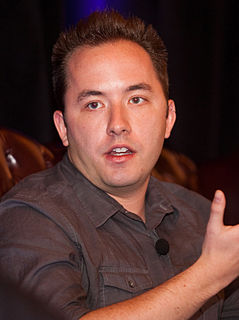A Quote by Marguerite Young
A good writer cannot avoid having social consciousness. I don't mean this about small pieces of writing, but about a big book. If it's a big book, there has to be more than one undertow.
Related Quotes
It's insane to be a writer and not be a reader. When I'm writing I'm more likely to be reading four or five books at once, just in bits and pieces rather than subjecting myself to a really brilliant book and thinking, "Well what's the point of me writing anything?" I'm more likely to read a book through when I take a break from writing.
I had a nice part at big newspapers, small newspapers, and then I went to a very big newspaper - 'The Wall Street Journal.' I wrote longer pieces, and I got tired of working so hard on stories that had a shelf life of essentially one day. So then I started working on longer magazine pieces and realized then that you might as well be writing a book.
When I'm writing, I'm thinking, "Well, this might be a book that I'll always be happy with, and certainly readers will be happy with." But another part of me knows that when I'm past the stage of writing, the book is gonna have good things about it, bad things about it - probably more bad than good. I just know that. That's who I am.
The people who review my books, generally, are kind of youngish culture writers who aspire to write books. When someone writes a book review, they obviously already self-identify as a writer. I mean, they are. They're writers, they're critics, and they're writing about a book about a writer who's a critic. So I think it's really hard for people to distance themselves from what they're criticizing.
There are innumerable writing problems in an extended work. One book took a little more than six years. You, the writer, change in six years. The life around you changes. Your family changes. They grow up. They move away. The world is changing. You're also learning more about the subject. By the time you're writing the last chapters of the book, you know much more than you did when you started at the beginning.
The process of writing a book is infinitely more important than the book that is completed as a result of the writing, let alone the success or failure that book may have after it is written . . . the book is merely a symbol of the writing. In writing the book, I am living. I am growing. I am tapping myself. I am changing. The process is the product.
A travel book is a book that puts you in the shoes of the traveler, and it's usually a book about having a very bad time, having a miserable time, even better. You don't want to read a book about someone having a great time in the South of France, eating and drinking and falling in love. What you want to read is a book about a guy going through the jungle, going through the arctic snow, having a terrible time trying to cross the Sahara, and solving problems as they go.
I'm struggling with what is epic. People decided I was epic - if by epic, do you mean a big, heavy book? 'David Copperfield' is a big book - is it epic? Amount of time covered, length, drama, or story - that's the real appeal - if the story is long you have a better chance of becoming more connected.





































